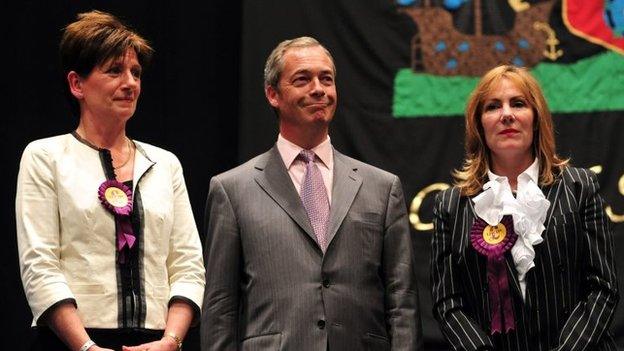What UKIP victory means
- Published

A political earthquake? Really? Some weren't convinced after the results of the local elections in England.
Few can doubt it now.
It is over 100 years since a national election has been won by a party other than the Conservatives and Labour.
What's more the UK Independence Party did it by winning seats not just in every region of England but in Wales and Scotland too.
The impact of the result will be immediate.
David Cameron will face pressure to harden up his promise to renegotiate Britain's relationship with the EU and to reduce immigration to win back the many Tory voters lost to UKIP.
Ed Miliband will face an inquest into why before the votes of Londoners were counted Labour were only neck and neck with the Tories.
And Nick Clegg will face demands to explain what can save his party if it is not a change of leadership.
Alex Salmond will have to confront the fact that he failed in his aim of ensuring that Scotland was a UKIP-free zone. However, he'll use the result to urge Scots to break free from the anti European forces which topped the poll in England.
Only Nigel Farage can be totally satisfied today although he knows all too well that winning a national election which he described as a "free hit" on the political establishment is much easier than winning a single seat in Westminster.
A year ago few took that prospect seriously. They do now.